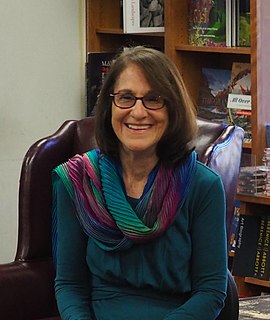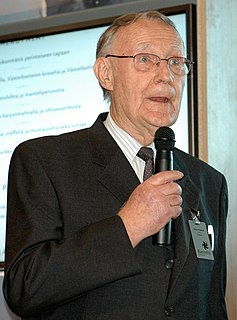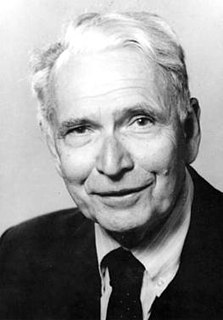A Quote by Beth Gibbons
A lot of people question my image and why I do what I do, and the answer is because this is how I want to present myself.
Related Quotes
This crazy little party girl who loves to enjoy life actually has a purpose. So, that's really the core of why I've survived so many years and I can go and I can fall down and I can get back up. Why? Because I know why I'm here. That's the question that a lot of people need to answer when they do fall is, 'Why am I here?' If you can answer that question, you'll be able to dust yourself off and shine like a phoenix out of ashes.
Science tries to answer the question: "How?" How do cells act in the body? How do you design an airplane that will fly faster thansound? How is a molecule of insulin constructed? Religion, by contrast, tries to answer the question: "Why?" Why was man created? Why ought I to tell the truth? Why must there be sorrow or pain or death? Science attempts to analyze how things and people and animals behave; it has no concern whether this behavior is good or bad, is purposeful or not. But religion is precisely the quest for such answers: whether an act is right or wrong, good or bad, and why.
Good description is a learned skill, one of the prime reasons why you cannot succeed unless you read a lot and write a lot. It’s not just a question of how-to, you see; it’s also a question of how much to. Reading will help you answer how much, and only reams of writing will help you with the how. You can learn only by doing.
Lying in bed, half-covered by the blankets, I would drowsily ask why he had come to my door that night long ago. It had become a ritual for us, as it does for all lovers: where, when, why? remember...I understand even old people rehearse their private religion of how they first loved, most guarded of secrets. And he would answer, sleep blurring his words, "Because I had to." The question and the answer were always the same. Why? Because I had to.
I never buy anything unless I can fill out on a piece of paper my reasons. I may be wrong, but I would know the answer to that ...I'm paying $32 billion today for the Coca Cola Company because... If you can't answer that question, you shouldn't buy it. If you can answer that question, and you do it a few times, you'll make a lot of money.
I do not see why the axiom of Prudence should not be questioned, when it conflicts with present inclination, on a ground similar to that on which Egoists refuse to admit the axiom of Rational Benevolence. If the Utilitarian has to answer the question, 'Why should I sacrifice my own happiness for the greater happiness of another?' it must surely be admissible to ask the Egoist 'Why should I sacrifice a present pleasure for a greater one in the future? Why should I concern myself about my own future feelings any more than about the feelings of other persons?'
If you have a little inteligence, sooner or later the question is bound to arise: What is the point of it all? Why? It is impossible to avoid the question for long. And if you are very intelligent, it is always there, persistently there, hammering on your heart for the answer: Give me the answer! - Why?
Because I would never work for a niche publication or a niche program on television and because I am a journalist and not an opinion person, my job is to try to see how many different points of view I can represent or how. It's not even a question of who you don't offend because you are always going to offend somebody. The question is how can you get people to listen to the information you have to present.
I would like people to know me for who I am, especially since I think people have a very skewed image of me. I was playing a lot of cute characters, a lot of little girls; I was objectified. And I don't want people to think of me as that because it's not who I am, and because I've seen a lot of hostility towards that image.
You don't know who you will fall in love with. You just don't. You don't control it. Some people have certain things, like, 'That's what I'm going for,' and I have a subjective version of that. I don't pressure myself … If you fall in love with someone, you want to own them - but really, why would you want that? You want them to be what you love. I'm much too young to even have an answer for that question.




































